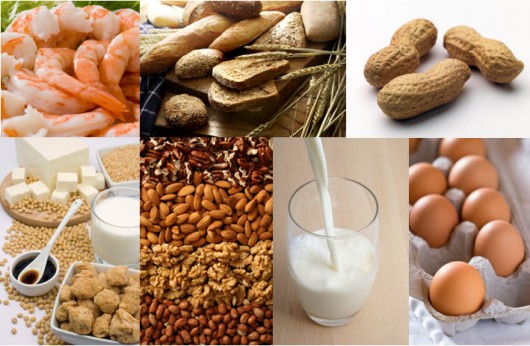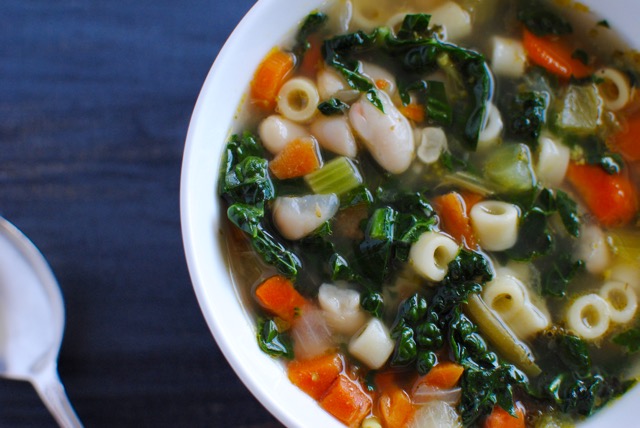Throwing a dinner party has become a difficult task, since just about everyone apparently has to avoid one ingredient or another due to a food allergy or intolerance. If you’re like me, you’re often left wondering: Do all these people really suffer from food allergies, or is it simply trendy to give up certain foods?
The answer is somewhat complex, so here’s some straightforward information on food allergies, food sensitivities, current food trends, and how all of these tend to get mixed up.
What’s the difference between a food allergy and food intolerance?
A food allergy is an adverse immune response to a food – usually the protein component of a food. Food allergies are serious and can be life threatening if the allergic food is eaten. A food intolerance (same as sensitivity) is a difficulty or inability to digest a component of food – usually the sugar component. Food intolerances may be unpleasant, but they don’t involve the immune system and are generally not harmful beyond uncomfortable symptoms.
What are the most common food allergies?
Peanuts, tree nuts, milk, eggs, fish/shellfish, soy, wheat, and sesame seeds. (Notice all these foods contain protein).
What are some symptoms of food allergies?
Shortness of breath, wheezing, difficulty swallowing, itching of the mouth/lips/tongue/throat, swelling, hives, rash, congestion, nausea, vomiting, abdominal pain, lightheadedness. These symptoms often require quick treatment, and an allergic person needs to avoid the offending foods completely.
What are some symptoms of food intolerance?
Symptoms are almost always digestion-related: gas, bloating, stomachache, diarrhea and/or constipation. These symptoms can often be controlled by limiting the quantity of the food eaten, eating the offending food in combination with other foods, or avoiding certain foods in the offending food group.
Example: dairy allergy vs. lactose intolerance
Those who are lactose intolerant lack the enzyme required to digest lactose, the naturally occurring sugar in milk. These people generally have digestive distress when eating creamy sauce or ice cream, but can often eat yogurt, kefir, aged cheese, or Lactaid milk with no problem. Eating dairy in small quantities tends to help, as does taking lactase enzyme pills before a meal.
People with a dairy allergy on the other hand, may suffer from vomiting, wheezing, and/or hives immediately (or up to a few hours) after drinking milk or eating milk products. In these cases the type of dairy eaten doesn’t really matter, and avoiding dairy products and foods with dairy derivatives is the best remedy.
How do I know which I have?
If you or your family member experiences unpleasant or severe symptoms after eating a particular food, see your doctor right away, and keep a food record of everything eaten. It will be easier for a specialist to diagnose your issue if you can describe exactly what is happening when, and a food record will allow you to do that.
Why do so many people seem to have food allergies and sensitivities?
A few reasons.
1. Heightened awareness. The more a population knows about a health concern, the more true and false cases there will be.
2. Many of us eat processed foods that are made with tons of food derivatives and additives, so if we have a reaction or unpleasant symptom, we may not know what caused it or where it came from.
3. It’s trendy. Gluten-free, dairy-free, sugar-free, soy-free, etc are all popular food trends right now. While some people must be on such diets because of real, serious health concerns (e.g. celiac disease or diabetes), others may adopt a restrictive diet in the hopes that doing so will aid in weight loss. Diets created for those with food intolerances or health problems are not weight loss plans, and are not the best way to approach healthier eating unless an allergy or intolerance is known.
4. Portion sizes. We eat such large portions of food these days, and of such high-calorie foods, that it’s no wonder many of us get stomach aches after eating. If you notice you feel sick after eating pasta at a restaurant, it’s more likely the amount of food you ate, rather than the pasta (or gluten, or wheat) itself that caused the discomfort. Moderating portion sizes would make most of us feel better.
Disclaimer: I am not a doctor or food allergy specialist, so if you have questions about your own allergies, sensitivities, or health in general, consult your doctor.







8 Comments
Hillary
May 16, 2012 at 6:07 pmPlease don’t call gluten-free a trend. Celiac disease is a serious health issue and this article seems to fail to acknowledge that fact. While some people may choose to eat gluten-free there are others of us who are not given such a choice. Whether it is a food allergy or an intolerance, people should respect other people. Rarely are food allergies or intolerances faked. Why would anyone want to give up something as delicious as ice cream or a good slice of whole wheat bread?
Willow
May 16, 2012 at 6:09 pmLOVE THIS! Such a great look at allergies, intolerances, and reasons why certain foods might “not agree” with people.
Amelia
May 16, 2012 at 6:21 pmHi Heather, you are so right that many people do need to avoid gluten because of Celiac disease or gluten intolerance. I will clarify this point so that this truth is not overlooked!
shelley
May 16, 2012 at 6:47 pmThank you for shedding some light here. As you know, it took a year for me to get a true diagnosis of my gluten allergy because my symptoms weren’t gastrointestinal. It’s been quite a transition for me to give up pasta, bread, cookies, etc., but I’m happy that food manufacturers have begun to cater to people like me so I can enjoy (“enjoy”?) substitutes. I’ll take a slightly weird-tasting cookie over an itchy rash any day!!
Kimberly Rosenfeld
May 23, 2012 at 9:18 amThis is a fabulous article!! I love how clear it is written and how it makes this muddled topic so simple to understand. I am now clear that I have a dairy intolerance! I have been staying away from dairy for the past year after suffering years of stomach discomfort and digestive pains and have been so much happier. While sometimes all I want is to indulge in a big bowl of ice cream (previously favorite food), know that it just isn’t worth the aftermath. I have found it otherwise pretty easy to find replacements for cheese and milk by opting for soy milk and goat cheese. The hardest part of keeping a dairy free diet is finding a satisfying replacement for ice cream. I have tried various options, but have never found something that really “hits the spot.” This is actually something that I was thinking of writing about on Pier to Peer and would love any suggestions that you have!
Jenny Hartline
June 22, 2012 at 8:02 amI have Lactose intolerance,allergic reaction to mangoes, pistachios, bee stings,and biting insects.
Jenny Hartline
June 22, 2012 at 8:10 amYou didn’t have to give up dairy, there is a pill out there called Digestive advantage: lactose Defense Formula. It costs about $7-$8 at Giant Eagle and Wal-mart. those are about the cheapest places you can possibly find, maybe Marc’ s might have them.
Rayna
January 4, 2017 at 1:02 pmThey are not calling it a trend to be disrespectful just simply highlighting the fact some peoples’ reason for having a particular diet could possibly be because it’s currently a trend.